

































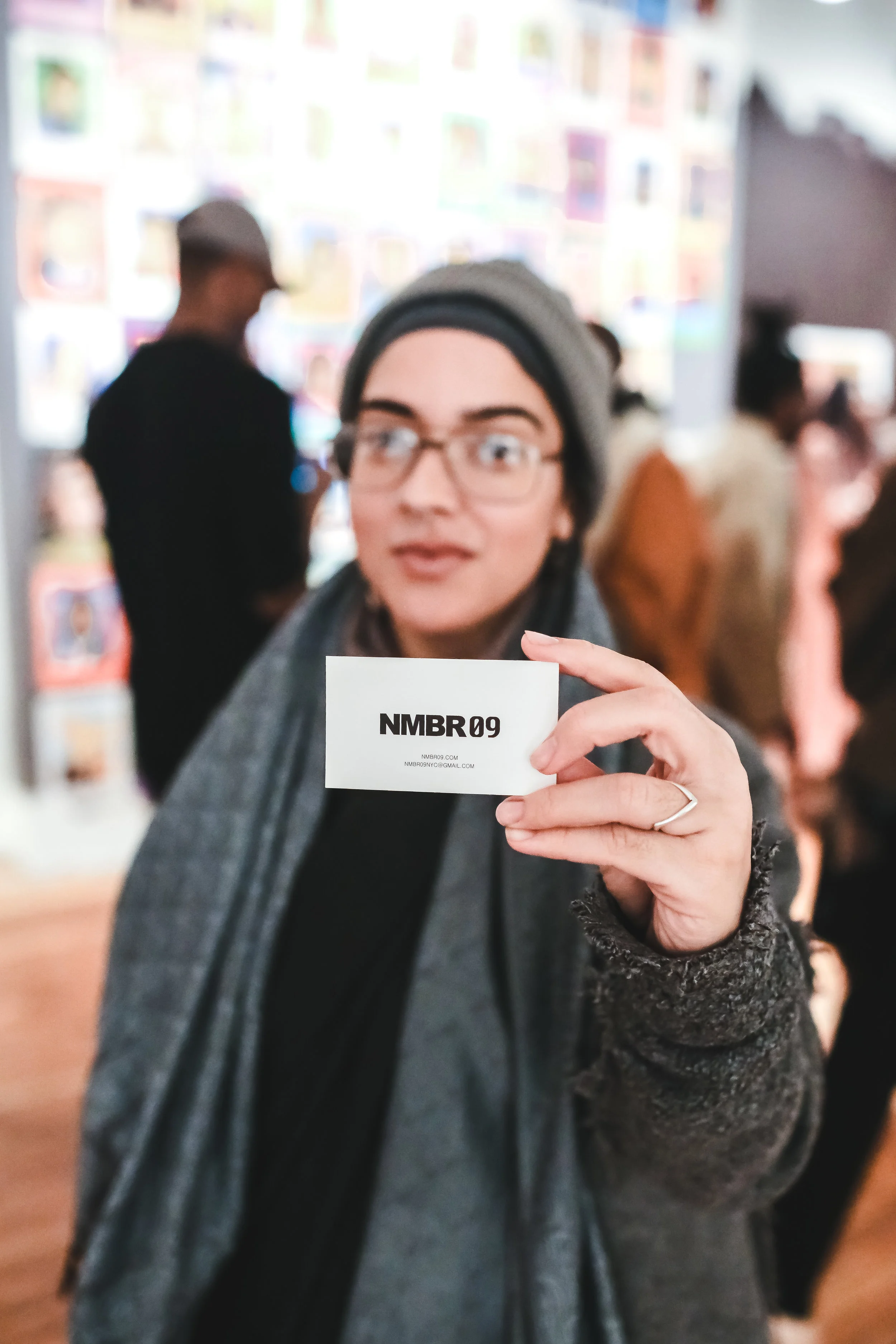































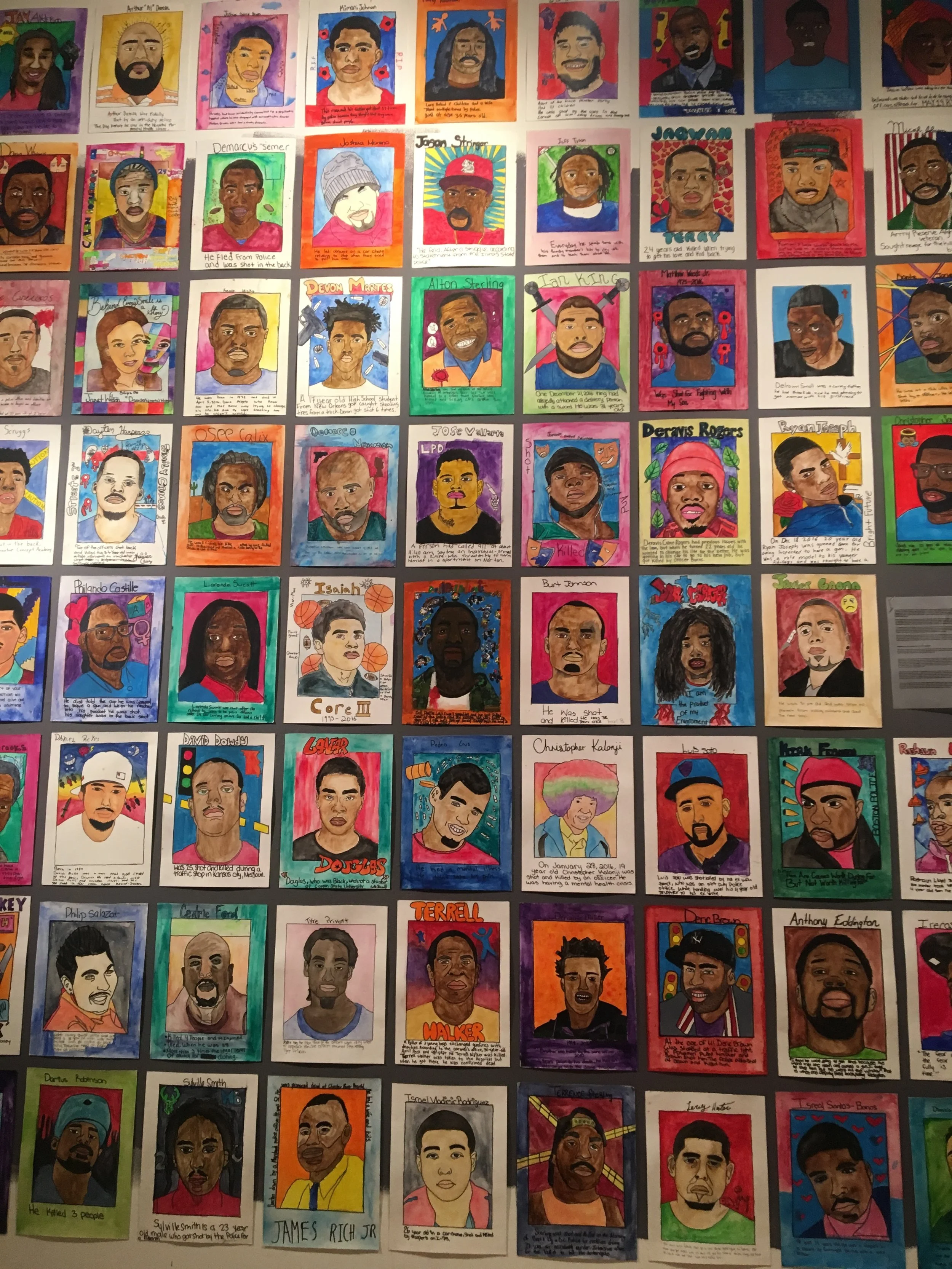



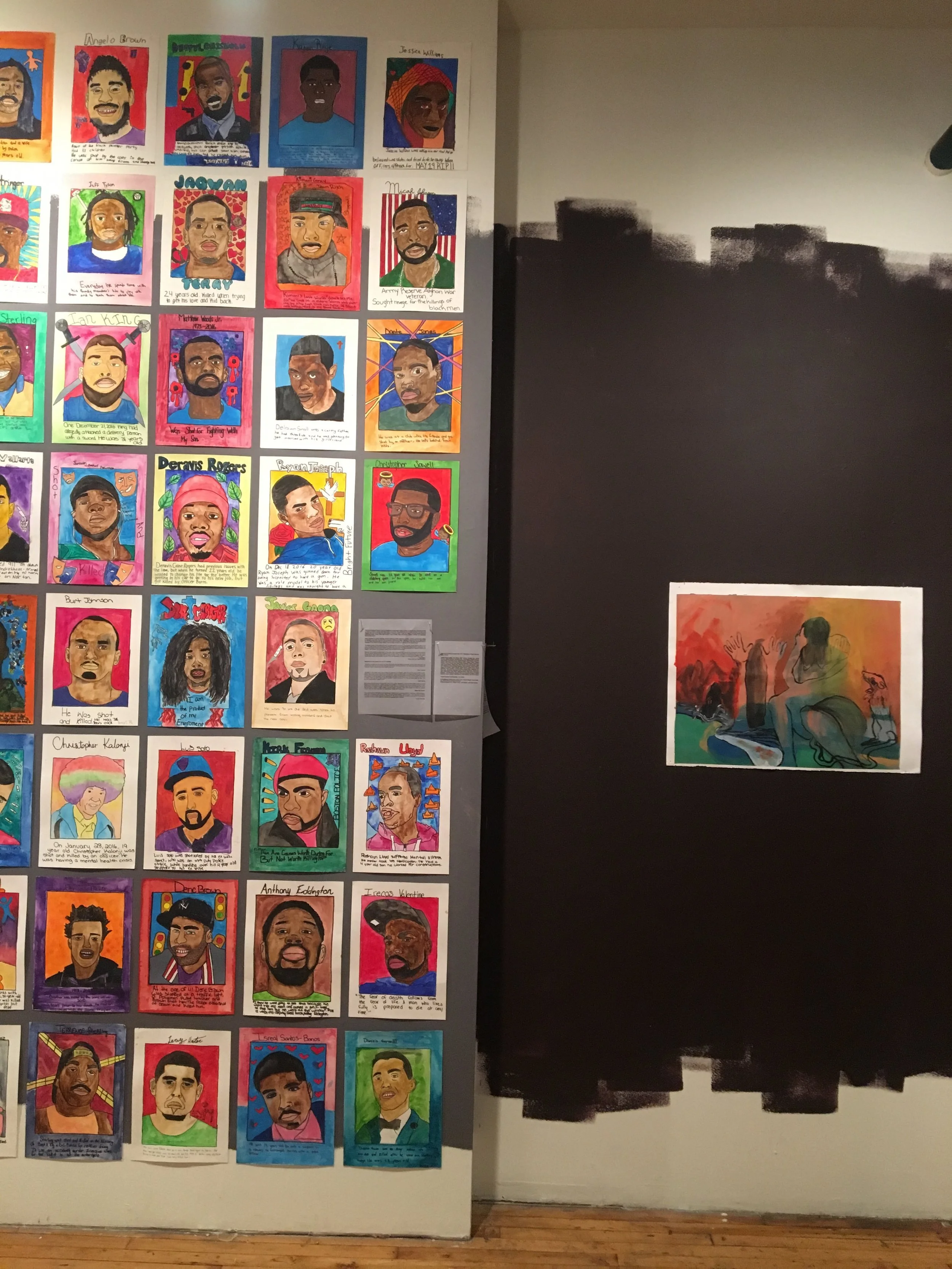

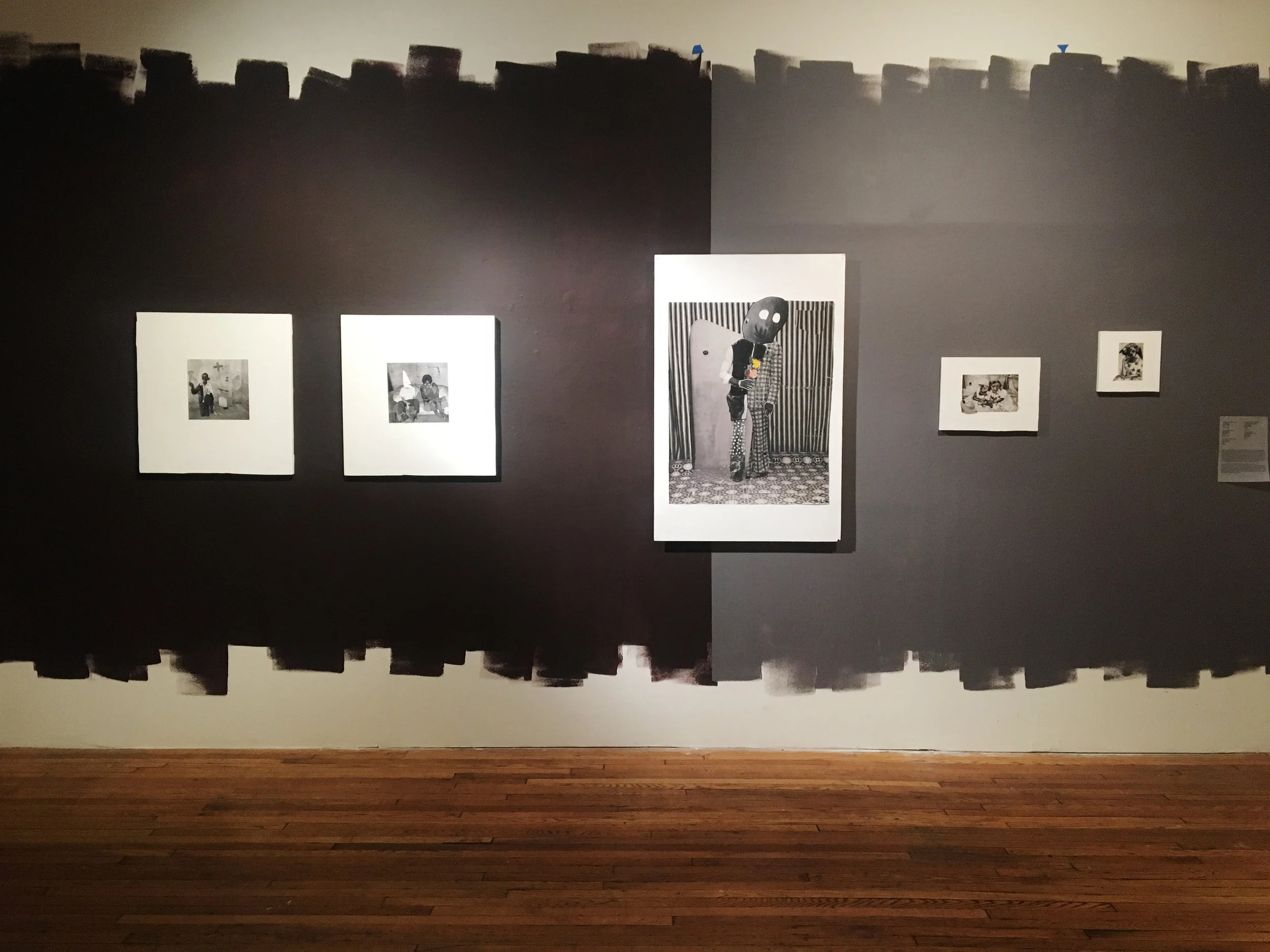




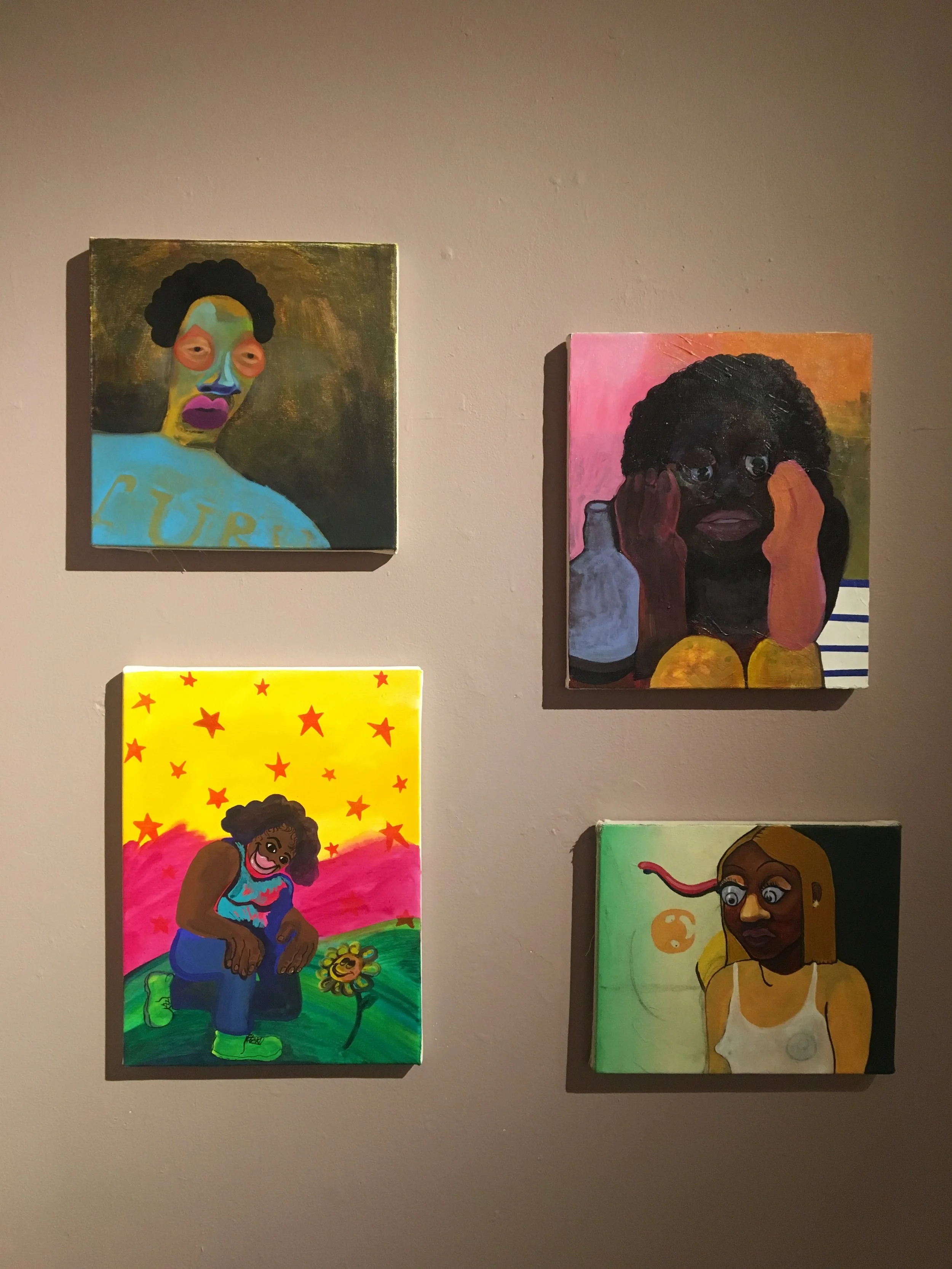

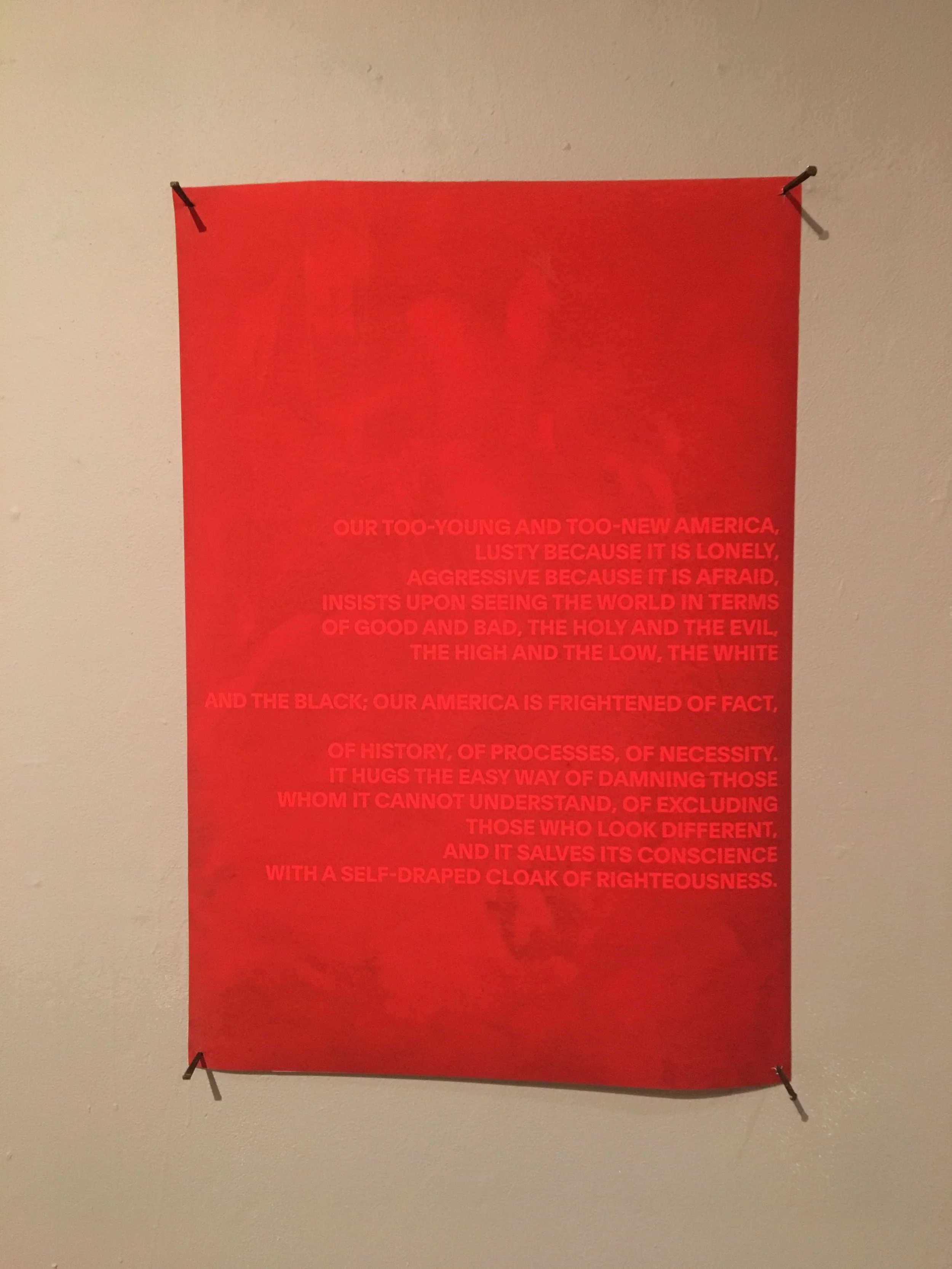





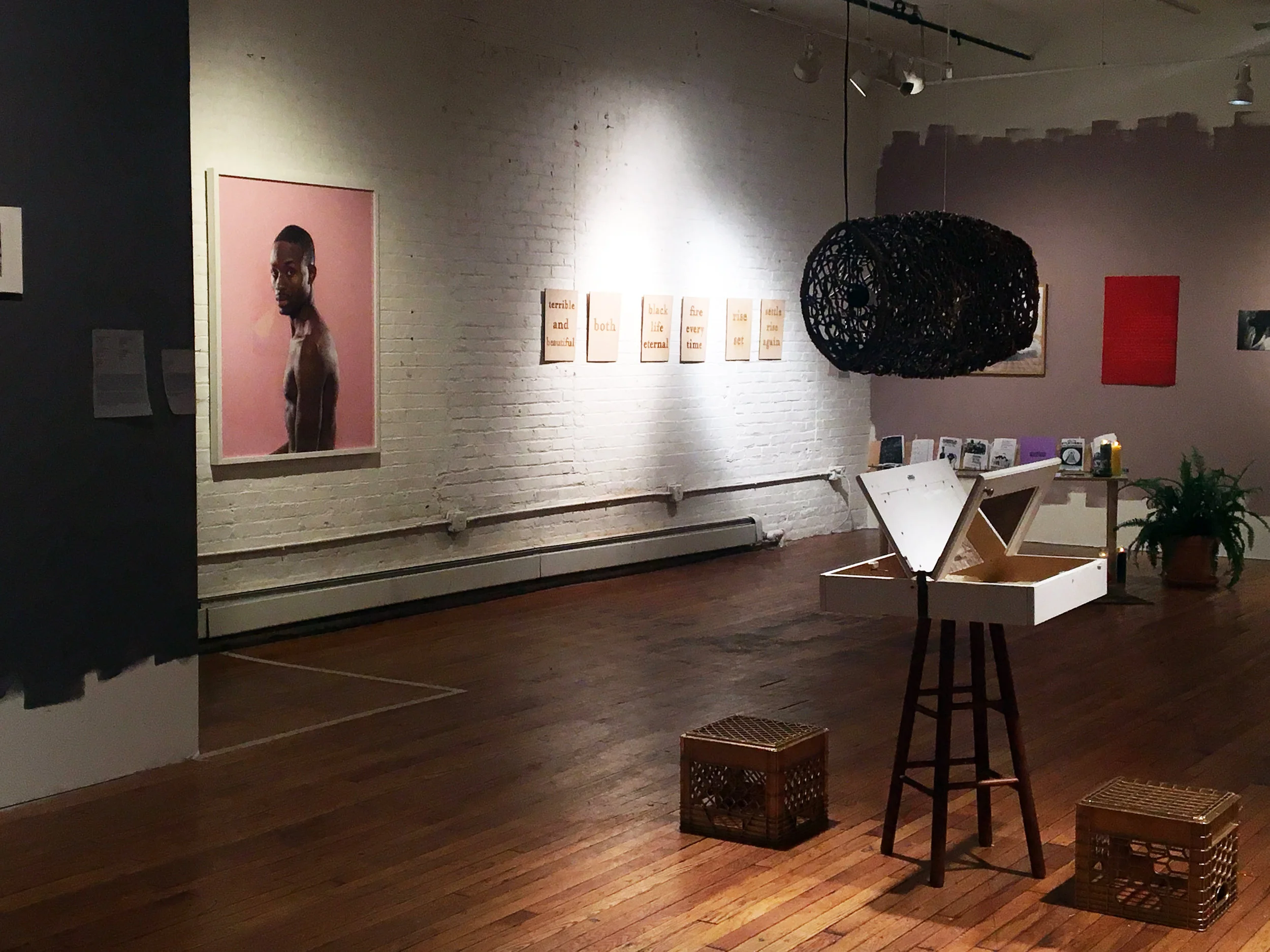

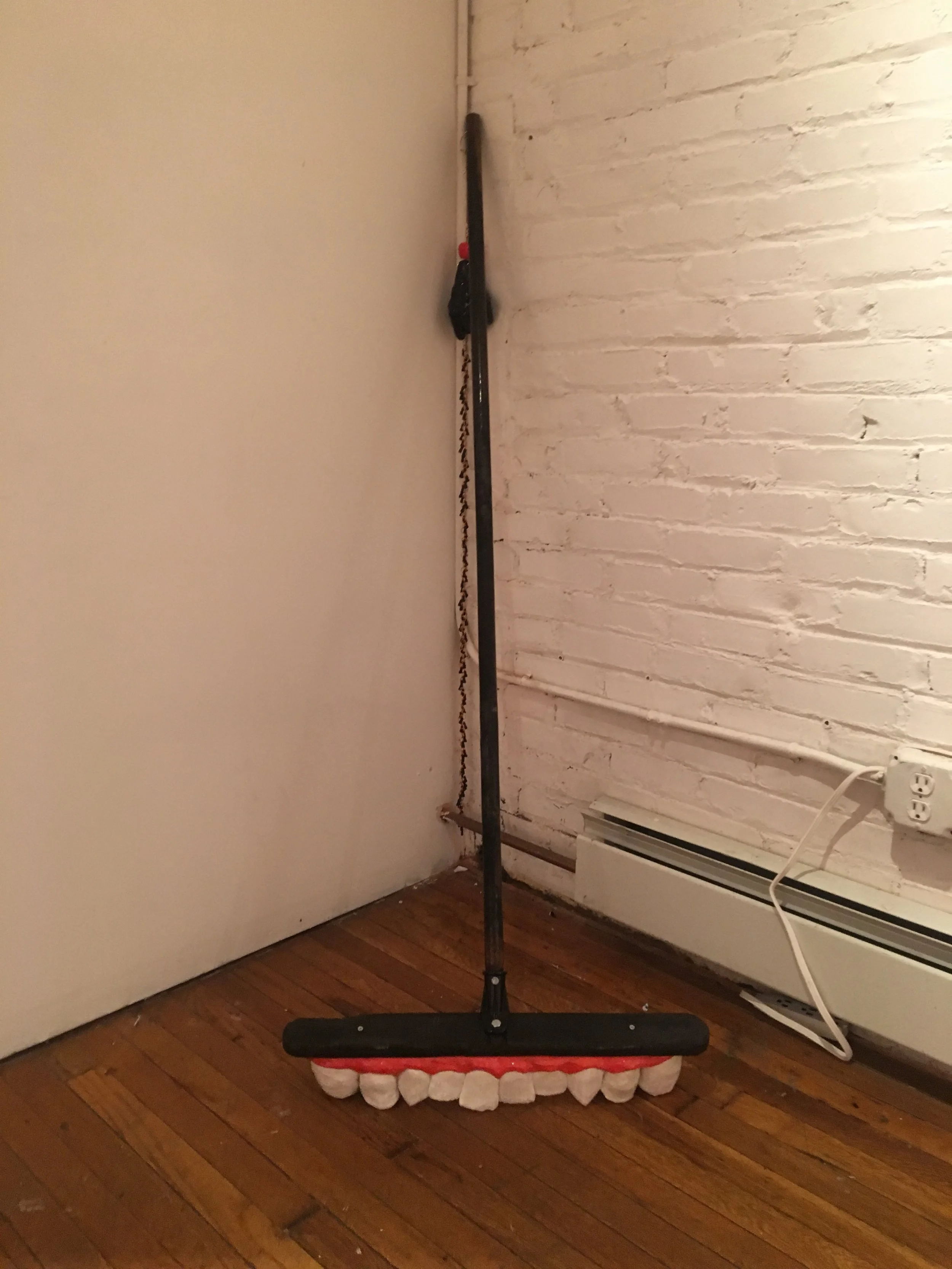
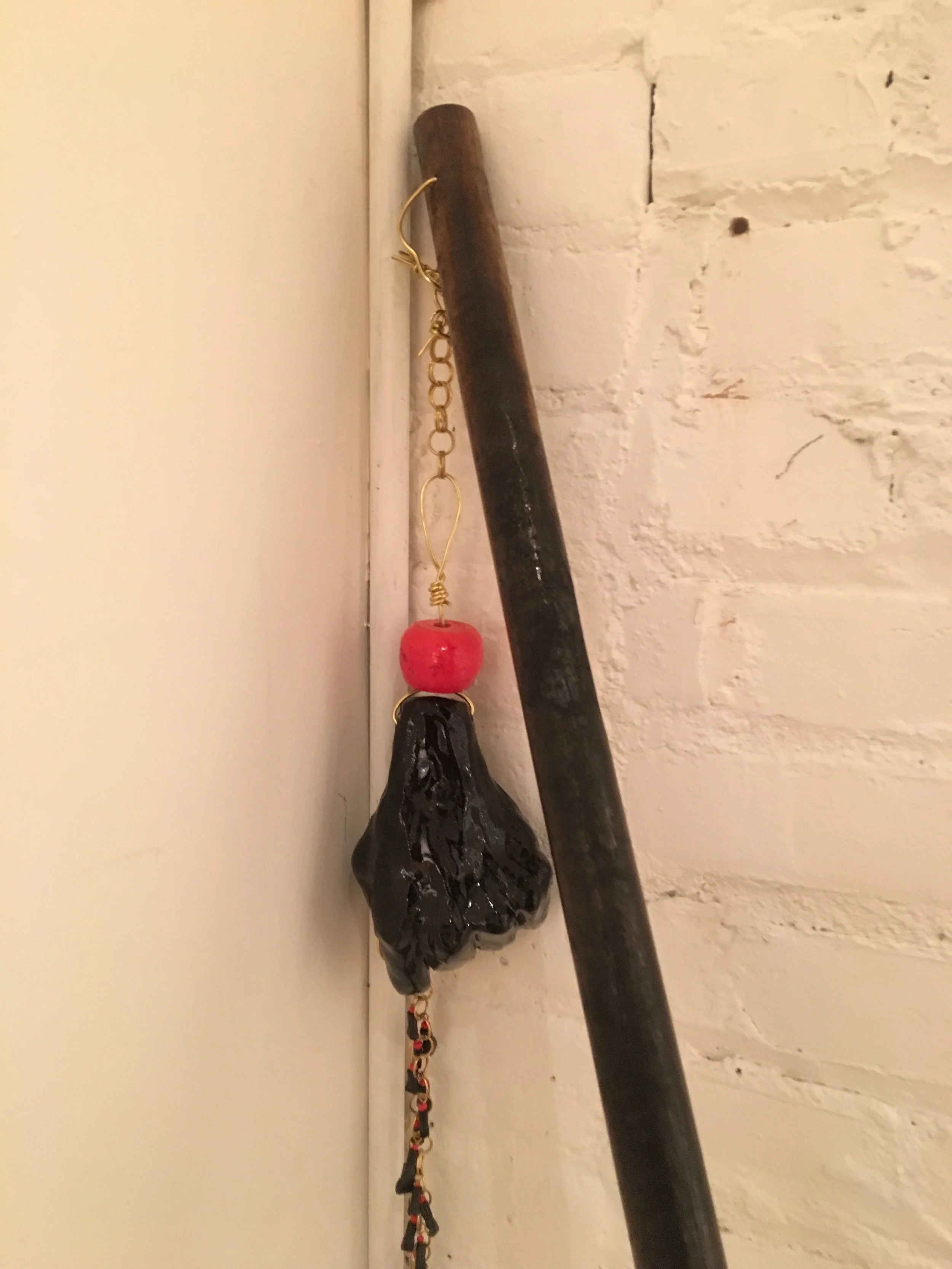




February 9 - March 11, 2017
Opening Reception & Open Mic with Uptown Vinyl Supreme & Performance by NMBR 09: Thursday, February 9, 5PM
BronxArtSpace
305 E 140 St, 1A
Bronx, NY 10454
Francheska Alcantara, Clara Lenor Cruz, Jonathan Gardenhire, Cheyenne Julien, Milo Matthieu, Shani Peters, Shellyne Rodriguez, Adrienne Rose, Anthony J. Thomas & Fannie Lou Hamer Freedom High School Students
According to Kenneth V. Hardy and Tracey A. Laszloffy's sociological study “Therapy with African Americans and The Phenomenon of Rage” (1995), rage is a sustained and intense emotion; it tends to develop gradually over a protracted period of time. It can be both functional and dysfunctional. The functional component may be a protective mechanism of resistance or a buffer against the trauma of oppression. The dysfunctional occurs when rage is internalized, several destructive manifestations tend to occur. When expressed, rage can have a soothing effect by providing an emotional release of the pain and humiliation associated with subjugation.
Reclaimed Rage; Resistance is an experiential group exhibition of contemporary artists working with photography, sculpture, collage and painting that explores the importance of rage in the age of resistance. By collaborating with revolutionary working-class-centered organizations and collectives across the Bronx, Reclaimed Rage; Resistance seeks to become an incubator for influencing community-empowering action and dialogue around the inevitable rage of an oppressive system.
The exhibition will also launch People Power Movement's, Sarah E. Wright & Joe Kaye Political Education Center. A mobile library honoring 60+ years of tremendous political work and writings of Sarah E. Wright and Joe Kaye, their dedication to the liberation of working class people around the world was a core inspiration for this exhibition. Guests are encouraged to connect, reflect, and start meaningful dialogue in the mobile library. Black Folk, has also produced a Community Resource Zine in collaboration with People Power Movement, Eztudio 43, and The Women’s Press Collective with key information on community resources and engagement in and around the South Bronx.
The exhibition is curated by Dalaeja Foreman and co-organized by the aesthetic collective, Black Folk.
Collaborators
Women's Press Collective
Program Schedule
Political Education Sessions & Workshops w/ People Power Movement
Formations in Community - Embodying Rage to Resistance
Tuesday, February 14, 6:30pm & Thursday, February 16, 6:30pm
Black Women & Survival as Resistance: Using the Work of Sarah E. Wright
Wednesday, February 22, 6:00pm-7:30pm
Decoding the “Angry Black Woman/Man”
Saturday, March 4, 6:30pm
Privitization of Public Housing
Sunday, March 5, 6:30pm
Regular Degular Feminism Workshop w/ Odiosas
Friday, February 24, 6-8pm
Curatorial Conversation on Trolley Night
Wednesday, March 1, 6:30pm
Curso De Defensa Contra El Desalojo // Anti-Displacement Defense Course w/ Eztudio 43
Saturday, March 4, 3-5pm & Saturday, March 11 , 3-5pm

For Adam Abdul Hakeem
Shellyne Rodriguez
Mix Media
2017
5x6’
Larry Davis’ sentencing and later death was the result of a corrupt NYPD and the underlying systematic control of the black community through repression. While in his youth, Davis was forced to sell drugs by the corrupt 40th precinct, dubbed Fort Apache for its violence on people of the south bronx, Davis refused and was met with 30 police of cers raiding his sister’s apartment. Davis shot 6 of cers and was incarcerated for 25 years on trumped charges. His de ance became political dynamite, Davis would later be murdered in a ght with another inmate the day before he was to be interviewed. Davis is immor- talized through his in uence in hip hop, his refusing the scare tactics of the NYPD and remains a folklore hero and icon of resistance in the South Bronx.

(Left to Right)
Mirage II
Shellyne Rodriguez
Ceramic
2016
13x15”
The Lovers
Cheyenne Julien
acrylic on stretched paper
2014
10x10”
Last, one home
Anthony J. Thomas
Mixed Media on Canvas.
(Denim, Glass, Newspaper, Rubber reclaimed from automobile tubes, Acrylic Paint)
2012
36” x 48”
Grillz #1
Jonathan Gardenhire
Digital C-Print
2014
14x18”
Adentro de una Gota de Sangre
Clara Lenor Cruz
Oil on Canvas
2014
48x36”
The upside down flag acts as an absorber/catalyst of the good, the bad and the ugly. A signal of a country in distress. Whether it be the resistance of self appreciation through royalty association and black love as a pure and dignified political act, or, the lived experiences that create self destruction and systemic martyrdom; this rage is the product of a tragic and destructive system.
Like the The Picture of Dorian Gray, Thomas’ work absorbs all of the painful and reckless truths, hidden from the public eye. Although it is a natural expression of grief, rage is often demonized. We must acknowledge the conditions that create our rage to understand how to use it righteously as a guiding point for our liberation.

There Are No Second Chances Here,
Watercolor on Paper
2017
Each portrait is 11”x15”
Participating Artists: Cris Reyes, Kaleb Stobbs, Ronaldo Diaz, Iyanna Pearce, Aiasha Anderson, Johnathan Diaz, Ymari Bartley, D’Andre Greene, Kylie Prophet, Mercedes Jenkins, Jaydon Barajona, Silyna Melvin, Garry Ro- driguez, Abel Perez, Karla Melo, Dalanda Jallow, Aaliyah Paster, Chelsea Nolasco, Trevor Prophet, Anne Marie Colon, Rusmelyn Paulino, Greily Gon- zalez, Kyera Gaines, Yadiasa Bah, Albin Guzman, Samantha Silverio, Jaylis Ortiz, Stellamaris Rafua, Nereida Figueroa, Henry Gonzalez, Shanel Jaquez, Miguel Del Rosario, Jamari Mitchell, Alyssa Skerret, Masiel Perez, Carlos Mendoza, Alexis Goodwin, Amanda Bailey, Joseph Resto, Nydaysha Pol- lock, Louis Hernandez, Stephanie Bravo, Ty’Quan Buchanan, Gessel Are- valo, Adrian Hislop, Keila Balen, Nathaniel Melvin, Elijah Rosa, Dominique Brisbane, Lianis Rodriguez, Jennyffer Siavichay, Aquaysia Sheppard, Mariah Gutierrez, Alicia Anderson, Faith Skerrett, Isaiah Montero, and Javon Gaines
Project Designer and Facilitator: Traci Molloy
Co-Facilitators: Marilyn Byrd, Danny Colon, Stewart Wagner, Paula Dallac- qua, Daniel Nohejl, and Ryan O’Connell
Additional Support from: Nathan Larson, Jeff Paladino, and Valerie McKee
There Are No Second Chances Here is a collaborative portrait project made in partnership with 9th and 10th grade students at Fannie Lou Hamer Freedom High School (FLH) in the Bronx. The artwork was made to honor the lives of the Black and Latinx men and women killed by police officers in America in 2016. It was also meant to call into question issues of institutional racism, mental health discrimination, police brutality, mass incarceration, violence, profiling, and oppression affecting this country.
Before beginning the portrait paintings, students studied the Haitian Revolution in depth, analyzing complex ideas related to oppression and revolt. They then drew comparisons between the Haitian Revolution to aspects of the U.S. Slave trade, the Civil Rights Movement (with an emphasis on the murder of Emmett Till), and the Black Lives Matter Movement (with an emphasis on the murder of Trayvon Martin). This information served as the backdrop for the portrait project.
The subject matter for this project was found via researching The Guardian’s “The Counted: People Killed by Police in the U.S.” The initial portraits were provided by the Visiting Artist. FLH students independently researched their individual to determine the direction of their project and the descriptive biographical text. They also composed their respective background imagery, color scheme, and typographic designs that accompanied the paintings.
More than 250 portraits were generated for this project. 30% of the people killed last year are represented in this exhibition. All of the deaths occurred during the calendar year of 2016. Some of the deaths made national news. The vast majority of them did not. Many of the people killed had previous police records. Many did not. Some people struggled with serious mental health issues, such as bipolar disorder, PTSD, and depression. The ages of the deceased ranged from 13-64.
- Traci Molloy
Visiting Artist and Project Facilitator
Reflections on this project from the FLH students
This was an art piece that showed the true side of the people that were killed by policeman. Not all of them were good, and not all of them were bad, but all of them were part of the minority. Seeing all the faces was really heartbreaking because with every line I traced, I thought about how it could've been me.
- Hector Aponte
The reason for this project was to acknowledge the young Black and Hispanic youth that lost their lives to police brutality. Crime is high in low-income areas because of desperation. People sometimes depend on illegal activities to make a living. There is also institutional racism.
- Faith Skerritt
Black people rarely get second chances when they commit a crime. Meanwhile a white man kills multiple people in a movie theater and he gets no jail time. Instead they label him “mentally ill”. A wise brother told me once wherever poverty is, there will be hunger, and wherever hunger is, there will be needs, and when somebody needs, they will do whatever they can to feed their needs, whether it is legal or illegal. From this project, I was able to learn about people who never got a second chance – men who were never given the opportunity to change their lives around.”
- Miguel Del Rosario
This project taught me what each person went through, and all the events that led up to their death. When I see all the pieces hanging together, I will feel sad. We need to change the way things are and make a difference.”
- Carilee Torruella

(Left to Right)
Strange Fruit (99¢ Series)
MIlo Matthieu
Mixed Media
2016
26.75 x 25.5”
Jim Crow (99¢ Series)
MIlo Matthieu
Mixed Media
2016
26.75” x 25.5”
The Charmer (99¢ Series)
MIlo Matthieu
Mixed Media
2017
48” x 32”
Untitled Dinner Rendezvous (A HOME AWAY Series)
MIlo Matthieu
Mixed Media
2016
12 x 16”
Untitled Portrait (A HOME AWAY series)
MIlo Matthieu
Mixed Media
2016
10”x10”
Rage and societal oppressions, encouraged by white supremacists heteropatriarchal capitalism destroy our perceptions of ourselves, by imposing standards that were created on the basis of being anti-black. As we internalize these standards as an attempt to assimilate we must take a step back and truly reflect; understanding that self-policing and adhering to oppressive standards will never liberate us. The centrality of the Black/African Diasporan experience is key to the liberation of the United States. All institutions in this country have been perverted and contorted to become tools of oppression. From religion being used as an instrument of enslavement to eurocentric standards as a device of psychological terrorism.
We must truly ask ourselves, Whose interest does self hatred serve?
Matthieu’s works speak to the concepts of Good and evil, one would not exist with- out the other. The stark use of black and white amplify the relationship between the oppressor and the oppressed. The oppressors could not exist without the op- pressed but the oppressed can thrive without the oppressors. Once WE, working- class people, gain control over all of the institutions that govern our lives, society will be put on an equal playing eld.

(Left to Right)
Untitled (Chanya)
Adrienne Rose
Newsprint
2016
16x20”
Space & Time
Shellyne Rodriguez
Collage
2016
10 x 12”
Untitled (Max)
Adrienne Rose
Newsprint
2016
16x20”
When the Firmaments Come Crashing Down...What?
Shellyne Rodriguez
Mix Media
Collage
2016
12 x 22”

Stargazer
Cheyenne Julien
Acrylic on Canvas
2016
30”x36”
(From Right to Left)
F.U.B.U.
Cheyenne Julien
Oil on Canvas
2013
18”x24”
Untitled (Girl with Flower)
Cheyenne Julien
Acrylic on canvas
2016
12”x16”
Self Portrait
Cheyenne Julien
Acrylic on canvas
2015
12”x14”
Identity Crisis
Cheyenne Julien
acrylic on canvas
2015
10”x12”
By imagining our own realities, we can create alternatives for the institutions that devalue us. Julien uses bright colors and abstraction as a humanizing tool, challenges the viewer to define self and societal influences by their own terms while acknowledging the contractions of existing in a system that is meant to destroy you.
The action of black abstraction is a device that must be used and has been used throughout history for imagining alternatives. During these times of continued but increased oppressions, the black imagination is pivotal to our survival.

(Back Wall, Left to Right)
Origin of the World
Jonathan Gardenhire
Digital C-Print
2013
24x36”
Untitled, (Black Confession/American Hunger 1943-2017)
Jonathan Gardenhire
Archival Pigment Print
2017
30x20”
Untitled, 1 of 3 (2014)
Adrienne Rose
Newsprint
2014
Untitled, 2 of 3 (2014)
Adrienne Rose
Newsprint
2014
Untitled, 3 of 3 (2014)
Adrienne Rose
Newsprint
2014
Untitled
Anthony J. Thomas
Mixed-Media
2017
Various
In conversation, Gardenhire and Rose’s works tell a story of personal liberation through process. Rose’s triptych self-portrait is the epitome of resistance. By boldly reclaiming her selfhood she seemingly shakes off the demons of yesterday, removing the illusions. By quoting novelist and icon, Richard Wright, Gardenhire proclaims a narrative all too familiar to working-class people; the Amerikkka that we know to be true, very different from the ”America” mainstream society claims it to be. Finally, Garden- hire’s Origin of the World expresses the action of education/personal study as a tool of defense against the false narratives imposed on working-class communities (often kept intentionally unattainable). From Left to Right, the works tell a similar story of process; by disillusioning self with education as the catalyst.

The Sarah E. Wright & Joe Kaye Political Education Center is a mobile library honor- ing 60+ years of tremendous political work and writings of Sarah E. Wright and Joe Kaye, their dedication to the liberation of work- ing class people around the world was a core inspiration for this exhibition. Guests are encouraged to connect, reflect, and start meaningful dialogue in the mobile library.

(Brick Wall, From Left to Right)
Untitled, (Shomari), 2013-2017
Jonathan Gardenhire
Archival PIgment Print
2013-2017
50x40”
Terrible and Beautiful
Shani Peters
Laser cut wood words - diptych
2016
Both 12x16”
Eternal, Every Time
Shani Peters
Laser cut wood words - diptych
2016
Both 12x16”
Rise Set
Shani Peters
Laser cut wood words - diptych
2016
Both 12x16”
Within the context of a dehumanizing society, the act of intimacy and self acknowledgment is a way to resist state-inflicted destruction. The institutions that oppress working-class communities bene t from our internal devaluation. As we create new & empower existing narratives for ourselves and our communities, we must re- member to question the concepts of blackness, latinidad, sexuality, gender, visibility, citizenship,etc. that have been imposed on us from people that do not have our interests in mind.
In the age of perceived wokeness and more blatant oppression; working-class communities can not afford to ignore the cause of our troubling conditions. As people (especially womyn of color) who have been consistently on the front lines of every struggle for liberation we must acknowledge our rightful place as leaders and revolutionaries in a capitalist system that exists to exploit us for everything we have. By appropriating terms from revolutionary thinkers like James Baldwin, on wood, Peters speaks to the ways in which people, like wood are subject to their conditions and must welcome the contradictions of our experience with open arms to confront the core of our issues.

Pheonix (Calling on the Spirit of the Garbage Offensive)
Shellyne Rodriguez
Assemblage
2015
4.5 x 2 x 3’.
The broom is reminiscent of a past of movements and social uproar that pushed young and old from the east harlem hoods to rede ne themselves. “Cleaning the Garbage” had become a campaign that would lead to garbage piled in the middle of the roads and set on re. Popular support for The Young Lords organization and the self-determination of the Puerto Rican community in the U.S was born out of the ashes. The teeth signify striking back and confronting the systemic issues plagu- ing our people, and our communities. Rage becomes a tool for empowerment and honoring our experiences.
